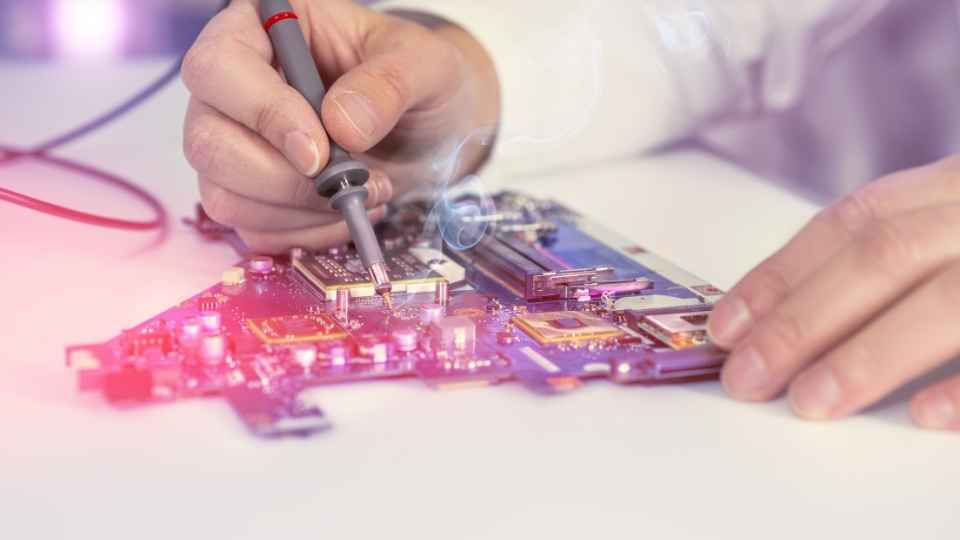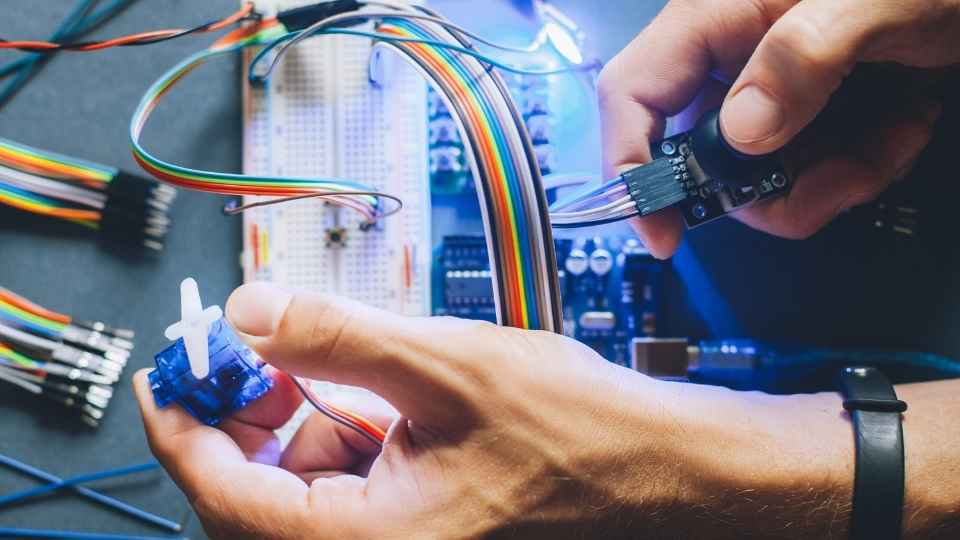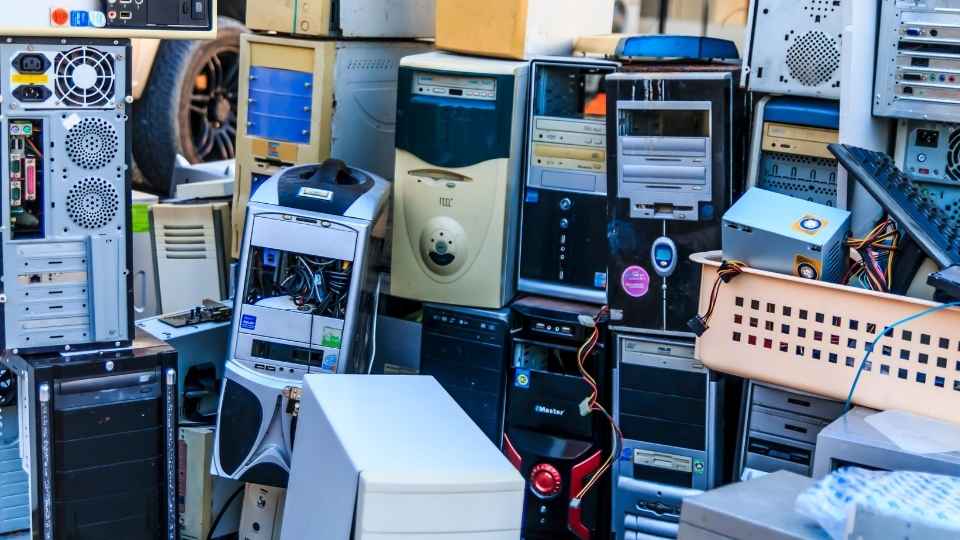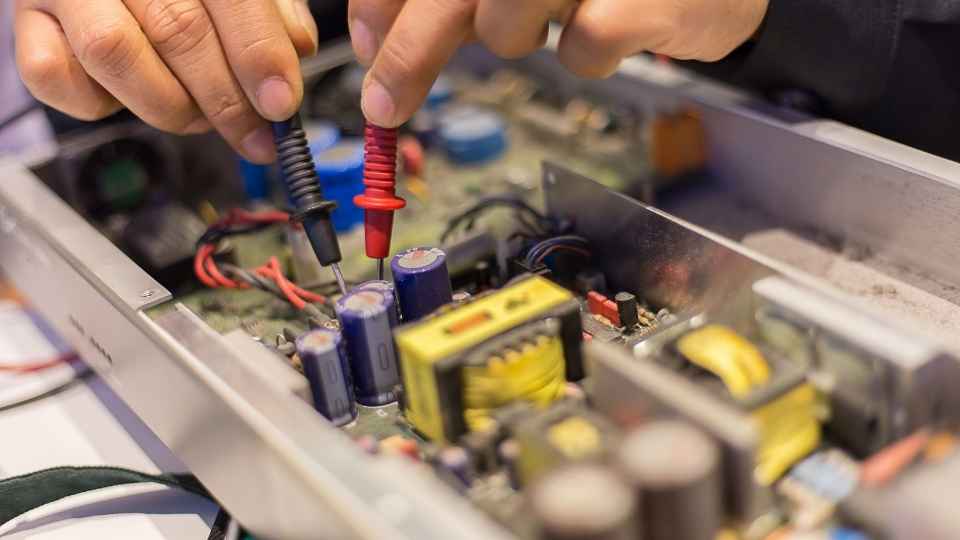
Coincidentally, the world of DIY electronics continues to thrive as enthusiasts seek ways to enhance their skills and expand their knowledge. Whether you are a beginner looking for essential guides or an experienced hobbyist seeking advanced techniques, there are countless books available to cater to your needs.
In this article, we will explore the best DIY electronics books that offer technical expertise, informative content, and detailed instructions. So buckle up and prepare to embark on a journey of freedom in learning and mastering the art of DIY electronics.
Key Takeaways
- Essential Beginner Guides provide detailed explanations of basic concepts in DIY electronics and offer step-by-step instructions for constructing circuits.
- Project-Based Books for Hands-On Learning provide a hands-on learning experience in DIY electronics and encourage creativity and problem-solving through real-world projects.
- Exploring Basic Theory in DIY Electronics is essential for gaining a comprehensive understanding of DIY electronic projects and enables DIYers to calculate component values and troubleshoot faulty circuits.
- Advanced Techniques and Concepts enable designing and constructing complex circuits in DIY electronics, incorporating microcontrollers and implementing digital signal processing algorithms.
Essential Beginner Guides
When it comes to expanding your knowledge and skills in DIY electronics, essential beginner guides are a crucial resource for gaining a strong foundational understanding. These books provide detailed explanations of basic concepts, step-by-step instructions for constructing circuits, and troubleshooting tips for common issues. They are written in a technical and informative style that appeals to an audience seeking freedom to explore the world of electronics independently.
Essential beginner guides cover topics such as electronic components, circuit design principles, soldering techniques, and safety precautions. They introduce readers to fundamental concepts like Ohm's law, voltage, current, and resistance. Additionally, these books often include practical projects that allow beginners to apply their newfound knowledge in real-world scenarios.
With clear diagrams and concise explanations, essential beginner guides empower individuals to start their journey into DIY electronics confidently. By following the instructions provided within these resources, readers can develop the necessary skills and knowledge required for more advanced projects.
Project-Based Books for Hands-On Learning
Project-based books offer a valuable hands-on learning experience, allowing individuals to develop practical skills and knowledge in the field of electronics. These books provide step-by-step instructions and detailed explanations, making it easier for beginners to understand complex concepts. They also encourage creativity and problem-solving by presenting real-world projects that can be built using electronic components.
Here are four project-based books that will enhance your skills in electronics:

'Arduino Workshop' by John Boxall: This book guides you through various Arduino projects, teaching you how to build interactive electronic devices.
'Raspberry Pi Cookbook' by Simon Monk: With this book, you'll learn how to use a Raspberry Pi board to create innovative projects like home automation systems and media centers.
'Make: Electronics' by Charles Platt: This comprehensive guide covers the basics of electronics and provides hands-on experiments that reinforce your understanding.
'Practical Electronics for Inventors' by Paul Scherz: It offers a broad overview of electronics principles along with practical examples and circuits.
These project-based books will empower you with the necessary skills to take on DIY electronic projects and explore the world of electronics with freedom.
Exploring Basic Theory in DIY Electronics
Exploring the basic theory of electronics is essential for individuals interested in gaining a comprehensive understanding of DIY electronic projects. By delving into the fundamental principles that govern the behavior of electrical circuits, enthusiasts can unlock a world of creative possibilities and gain the freedom to design and build their own electronic devices.
Basic theory encompasses concepts such as Ohm's Law, which defines the relationship between voltage, current, and resistance in a circuit. Understanding this law allows DIYers to calculate component values and ensure proper functioning of their projects. Additionally, knowledge of circuit analysis techniques like Kirchhoff's Laws enables enthusiasts to troubleshoot and debug faulty circuits effectively.

Furthermore, exploring basic theory provides insight into important components such as resistors, capacitors, transistors, and integrated circuits. A thorough understanding of these components is crucial for designing innovative circuits that meet specific requirements.
Advanced Techniques and Concepts
Advanced techniques and concepts in electronics allow enthusiasts to push the boundaries of their knowledge and skills, enabling them to design and construct complex circuits that harness the full potential of electronic components. These advanced techniques open up a world of possibilities for DIY electronics enthusiasts, allowing them to take their projects to new heights.
Some key aspects of advanced electronics include:
- Advanced circuit design: Utilizing more complex circuit topologies, such as analog filters, oscillators, and amplifiers.
- Microcontrollers: Incorporating microcontrollers like Arduino or Raspberry Pi for enhanced functionality and control.
- Signal processing: Implementing digital signal processing algorithms for tasks like audio or image processing.
- Wireless communication: Integrating wireless modules to enable remote control or data transfer.
Must-Have Reference Books for Electronics Enthusiasts
A comprehensive collection of reference books can greatly assist electronics enthusiasts in expanding their knowledge and understanding of various concepts, techniques, and principles in the field. These books serve as invaluable resources for both beginners and experienced individuals looking to enhance their skills.
One must-have reference book is 'The Art of Electronics' by Horowitz and Hill. This classic text covers a wide range of topics, including circuit design, digital electronics, and analog systems.
Another essential book is 'Practical Electronics for Inventors' by Paul Scherz and Simon Monk. It provides clear explanations of fundamental concepts along with practical examples that aid in the application of these principles.
Additionally, 'Learning the Art of Electronics: A Hands-on Lab Course' by Hayes and Horowitz offers hands-on experiments to reinforce theoretical knowledge.

With these reference books at hand, electronics enthusiasts can confidently explore new ideas and push the boundaries of their skills in this exciting field.
Frequently Asked Questions
What Are Some Recommended Online Resources for DIY Electronics Beginners?
There are several recommended online resources for DIY electronics beginners. These resources provide technical, informative, and detailed information to help individuals learn and enhance their skills in the field of DIY electronics.
Are There Any DIY Electronics Books Specifically for Children or Young Beginners?
There are several DIY electronics books available that cater specifically to children or young beginners. These books provide a simplified introduction to the concepts and principles of electronics, making it easier for young learners to grasp and apply their knowledge.
Are There Any DIY Electronics Books That Focus on Specific Projects, Such as Building a Robot or Designing a Circuit Board?
Yes, there are DIY electronics books available that focus on specific projects such as building a robot or designing a circuit board. These books provide detailed instructions and technical information for individuals seeking to enhance their skills in these areas.
Can You Recommend Any DIY Electronics Books That Cover Advanced Topics Like Artificial Intelligence or Machine Learning?
There are several DIY electronics books available that cover advanced topics such as artificial intelligence and machine learning. These books provide technical and informative details for an audience seeking freedom in exploring these subjects.
Are There Any DIY Electronics Books That Provide Guidance on Troubleshooting and Repairing Electronics Devices?
Yes, there are DIY electronics books available that provide guidance on troubleshooting and repairing electronic devices. These books offer technical knowledge, detailed instructions, and informative tips to help individuals effectively diagnose and fix common issues in their electronic devices.
 Basic Electronics ConceptsEssential ToolsCircuit Design BasicsMicrocontrollersDIY Electronics ProjectsRoboticsPrivacy PolicyTerms And Conditions
Basic Electronics ConceptsEssential ToolsCircuit Design BasicsMicrocontrollersDIY Electronics ProjectsRoboticsPrivacy PolicyTerms And Conditions
